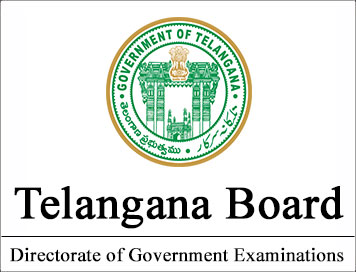Telangana State Board CLASS-12 Syllabus - Civics
Disclaimer: This website is NOT associated with CBSE, for official website of CBSE visit - www.cbse.gov.in
(Download) Telangana Board Exam CLASS-12 Syllabus
Exam Name : Telangana Board Exam CLASS-12 Syllabus
Subject : Civics
Year : 2010-11
INTERMEDIATE II YEAR
INDIAN GOVERNMENT AND ADMINISTRATION
w.e.f 2010-11
Civics – paper II
SYLLABUS
The syllabus comprises thirteen units
I. Indian Constitution:
a) Indian National Movement
b) Government of India Acts – 1909, 1919 & 1935
c) Salient features of Indian Constitution
II. Fundamental Rights &Directive Principles of State Policy:
a) Fundamental Rights
b) Directive Principles of state Policy
c) Fundamental Duties
III. Union Government:
a) Union Executive – President of India
b) Vice – President of India
c) Prime Minister & Council of Ministers
IV. Indian Parliament:
a) Lok Sabha: Composition – Powers and functions
b) Rajya Sabha: Composition – Powers and functions
c) Parliamentary Committees: Public Accounts Committee – Estimates
Committee – Committee on Public Undertakings
V. Union Judiciary:
a) Supreme Court of India – Composition
b) Powers and Functions of Supreme Court of India
c) Judicial Review
VI. State Government:
a) State Executive – Governor: Powers and Functions
b) Chief Minister : Powers and Functions
c) Council of Ministers
VII. State Legislature:
a) Legislative Assembly: Composition – Powers and Functions.
b) Legislative Council: Composition – Powers and Functions.
c) Legislative Committees: Public Accounts Committee – Estimates
Committee and Ethics Committee
VIII. State Judiciary:
a) High Court – Composition.
b) Powers and Functions of High Court
c) District Courts: Composition – Powers and Functions.
IX. Union – State Relations:
a) Legislative Relations
b) Administrative Relations
c) Financial Relations
X. Local Government:
a) Rural Local Government : Panchayati Raj Institutions – 73rd Constitution Amendment Act.
b) Urban Local Government: Municipalities _ Municipal Corporation – 74th Constitution Amendment Act.
c) District Collector : Role in Local Governments
XI. India’s Foreign Policy:
a) Determinants of Foreign Policy
b) Basic features of India’s Foreign Policy
c) South Asian Association for Regional Cooperation (SAARC)
XII. United Nation Organization (UNO):
a) Origin of UNO
b) Principal Organs of UNO
c) Achievements and failures of UNO
XIII. Contemporary Trends and Issues:
a) Globalization
b) Terrorism
c) Corruption
Prepared by-
D.DEEPAK RAJ, J.L in Civics
G.J.C, BHEL, R.R.Dist.
Click Here to Download
Courtesy: Telangana Board
